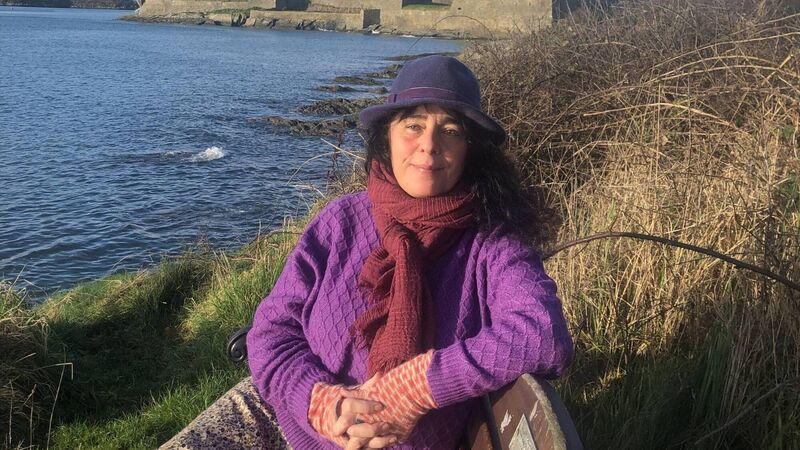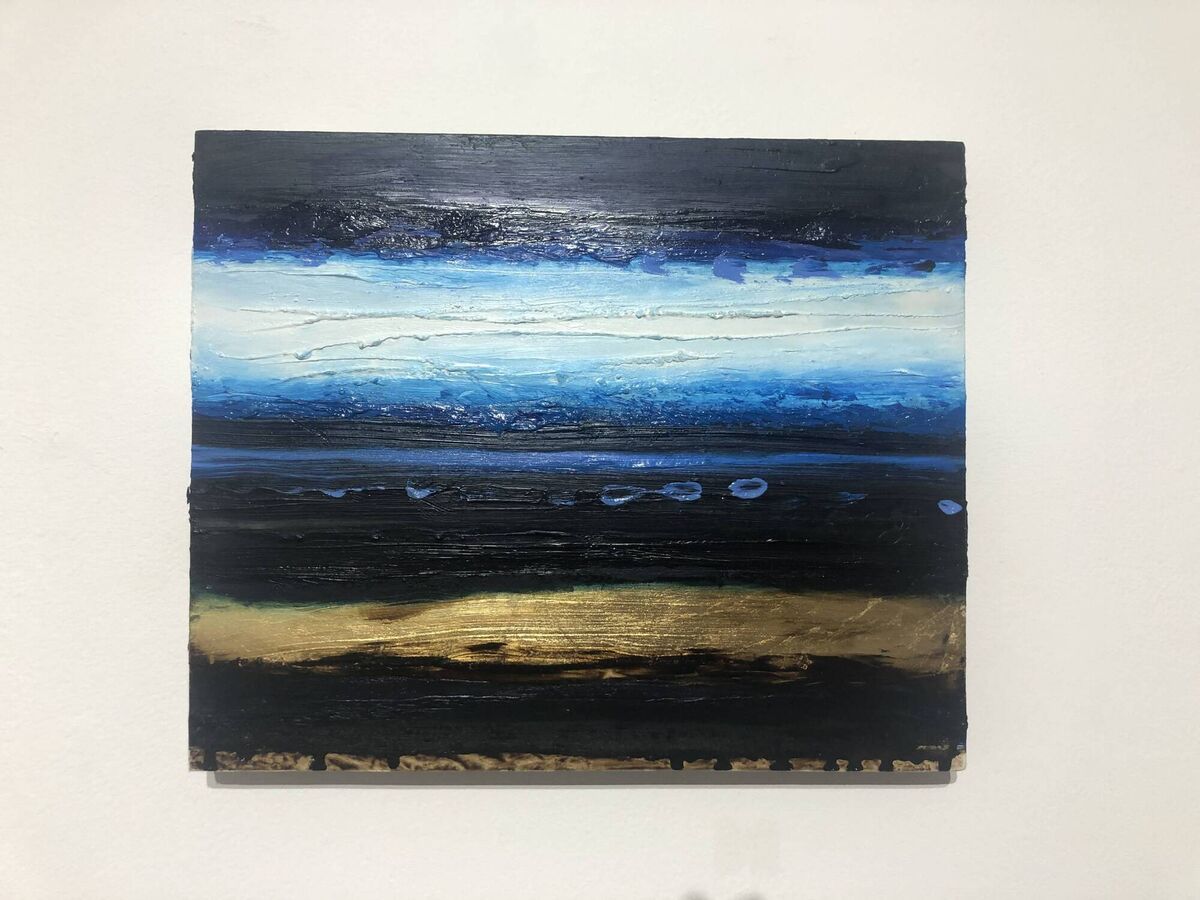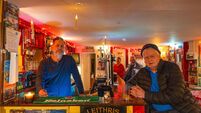‘Art helped me process grief after my son died’

Artist and art therapist, Dearbhail Connon
KINSALE-BASED artist, Dearbhail Connon, says that her art helped her process the terrible grief she experienced when her 14-year-old son died in a freak accident.
In 2014, her son Leon’s head got stuck in railings near home and he died from a heart attack as a result. He was an only child. Dearbhail had separated from her son’s father before the tragedy.
Dearbhail, also an art therapist exploring past lives, is a very spiritual person attuned to energy and “channelling” grief and also positivity. She admits she experienced a lot of anger when Leon died. And, strange though it sounds, the Dubliner, who currently has an exhibition at the Lord Mayor’s Pavilion in Fitzgerald’s Park, had a premonition that she would suffer immense loss.
“As a soul, I knew exactly that what happened was part of my life’s plan. Part of my brain was saying ‘this is it, this is the thing that I knew’ and the other part of my brain was panicking saying ‘get out, get out’.
“ I feel very deeply that it’s one thing to grieve as a mother and another thing to grieve as a soul. As a soul, I never had any doubt that Leon is still with me. As a mother – and I’ve talked to a lot of parents who have lost a child – it’s a huge thing to try to accept.
“This thing that seems so unnatural has actually happened.”
Dearbhail says that, from a very young age, she felt connected to the ‘unseen’.
“I guess the other world: the unseen, the fairies, whatever you want to call it. I was literally looking for it everywhere. And I was very aware of having lived past lives when I was a child and wanted to find out the places I had lived. Exploring past lives is part of the art therapy work I do now. It’s soul work basically.
“It shows up in present life so it’s not just about looking at the past. The past is the root of where it happened but the present life is showing it up. It might lead to acting out. That’s something people would like to change. I trained to be a guide, bringing people into a light trance. I’m guided to find different pathways to help people to remember. It works with most people but not everybody.”

Entitled ‘Swan Song,’ Dearbhail’s exhibition is about moving from personal grief to global grief and its reference point is the few years since just before lockdown.
“I spent a lot of time on a residency at Cill Rialag in Ballinskelligs and I created a large body of work which celebrates the beauty of life and my deep connection to the ancestors of the land and of ancient Ireland.”
Before the pandemic, Dearbhail says she had a sense that the world was going to go through a change.
“I felt there was going to be a big impact. Artists are often said to be ahead of their time. Just after Covid came, I shape-shifted into a swan. I chose a swan because when I went to paint, all I could see was white light in Cill Rialig. Through all the paintings in the exhibition, you see white (as well as different shades of blue, brown, gold and red markings.)”
One of the paintings (which suggest sea, landscapes and skies but are not strictly representational) responding to what was happening in the world is called ‘I Can Breathe Now’. It was inspired by the murder of Black American, George Floyd, by a policeman in Minneapolis in 2020.
“That to me was a really pivotal moment. I had to respond to it in some way. I knew I could do it through painting.
“Again, it’s the idea of the swan witnessing everything. The swan is like a symbol of grace, purity and innocence – the opposite to everything that was happening.”
While ‘Swan Song’ suggests bowing out, Dearbhail is using the term for her exhibition title as the end of one thing and transitioning into another way of life/being.
“It’s the end of the way it has been and moving into the new world where there’s far more awareness of our humanity and our connection with the environment in particular.”
How does Dearbhail feel about the future of planet earth?
“I actually feel positive. I know it looks bleak. I feel there’s a certain narrative that we just keep focusing on the negative. But there are a lot of positive things going on that we don’t all know about.
“I have a very strong sense that what we’re going through is a very tough transition. But I do feel that the world will come to a sense of peace. My own way is to just be aware of what I’m creating. There is so much negativity. Am I adding to that or doing the opposite?”
Dearbhail’s work has strength about it, coming from bold use of colour and occasional gold symbolising, as she says, “wisdom and the highest vibration of spirit”.
She wants to bring back hope, celebration and beauty as important aspects of spirituality.
In her role as an art therapist, Dearbhail does a lot of work with children over the age of eight, talking about the future.
“Some of them are terrified because of the media telling them the world is going to end due to climate change. I keep reminding them that the world has gone through many changes. I’m not denying climate change. It’s a question of trying to bring things into balance.”
‘Swan Song’ is at the Lord Mayor’s Pavilion in Fitzgerald’s Park until January 13.







 App?
App?


